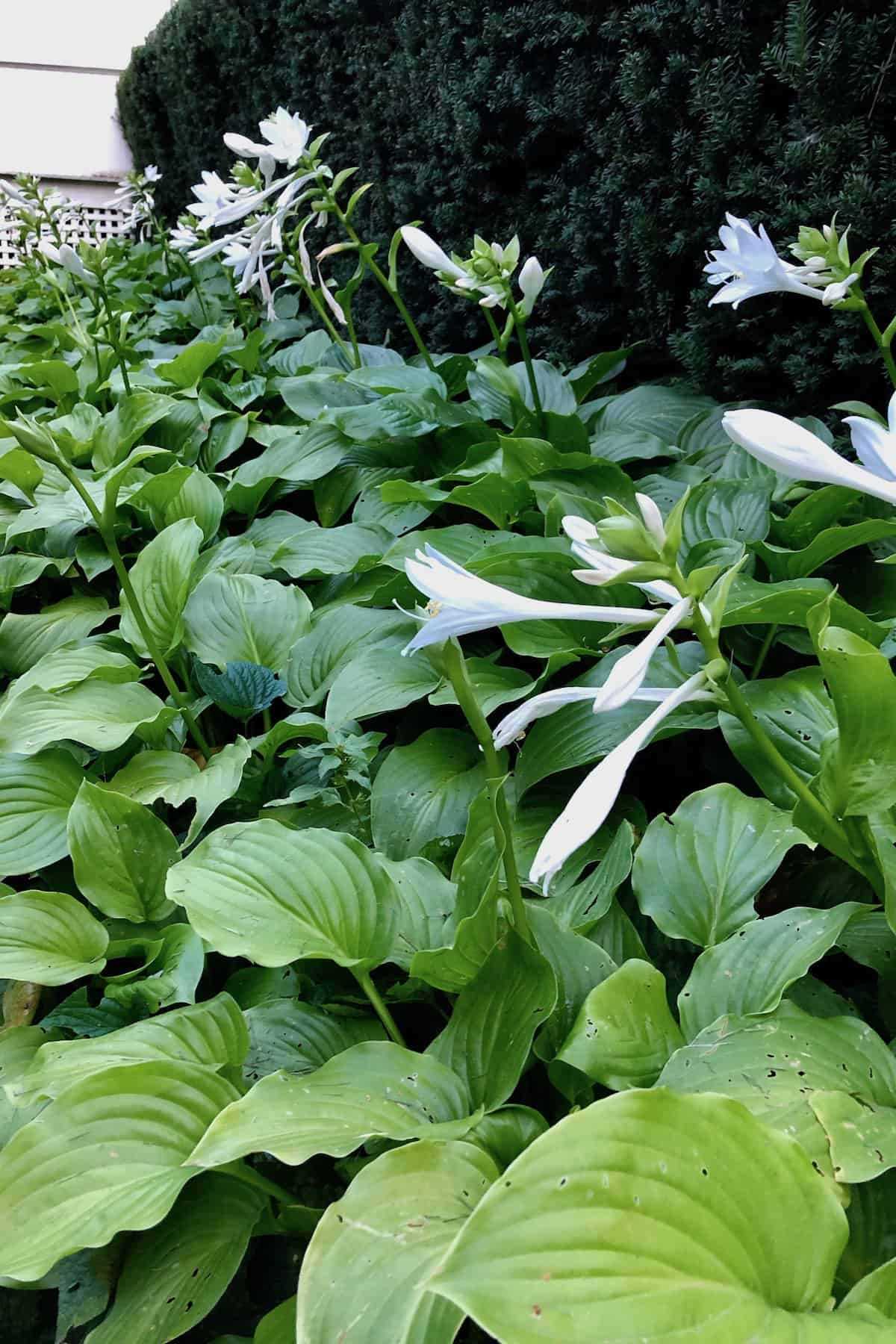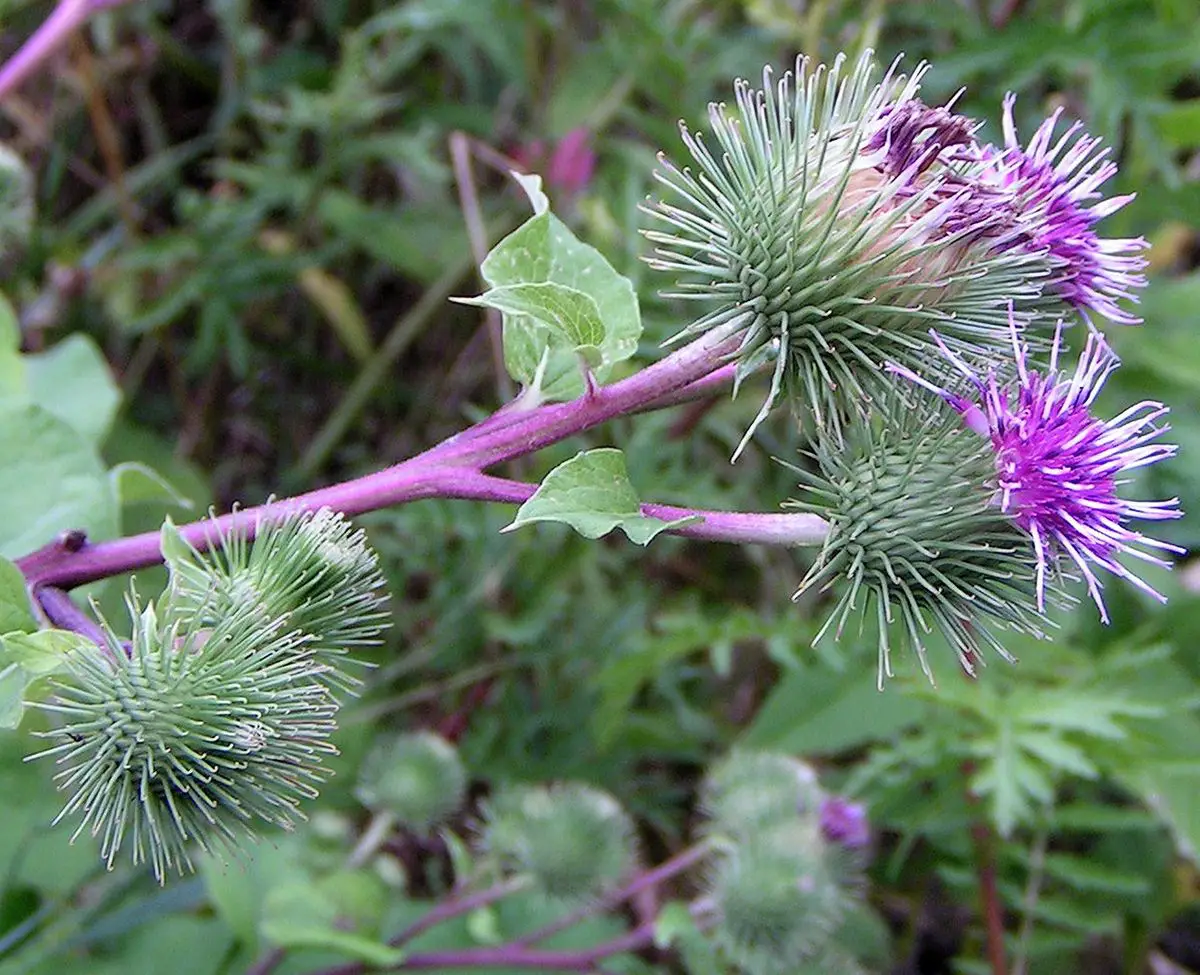- What is Medicinal Angelica?
- Traditional Uses
- Chemical Constituents
- Precautions and Side Effects
- The Properties of Medicinal Angelica
- 1. Anti-inflammatory
- 2. Digestive Aid
- 3. Antispasmodic
- 4. Diuretic
- 5. Immune Booster
- 6. Antioxidant
- 7. Respiratory Support
- 8. Blood Circulation
- 9. Hormonal Balance
- Benefits of Medicinal Angelica
- How to Use Medicinal Angelica
- 1. Tea
- 2. Tincture
- 3. Topical Application
- 4. Cooking
- Precautions and Contraindications
- 1. Allergies:
- 2. Pregnancy and breastfeeding:
- 3. Bleeding disorders:
- 4. Surgery and anesthesia:
- 5. Diabetes:
- 6. Interactions with medications:
- 7. Children:
- Side Effects of Medicinal Angelica
- Interaction with Other Medications
- Where to Buy Medicinal Angelica
- Questions and Answers:
- What are the properties of medicinal Angelica?
- What are the health benefits of medicinal Angelica?
- Can medicinal Angelica be used for pain relief?
- Is medicinal Angelica safe to use during pregnancy?
- Are there any contraindications or side effects of medicinal Angelica?
- Can medicinal Angelica be used for respiratory conditions?
- Are there any traditional uses of medicinal Angelica?
- Videos: All about Self Heal | A wild medicinal plant everyone should know!
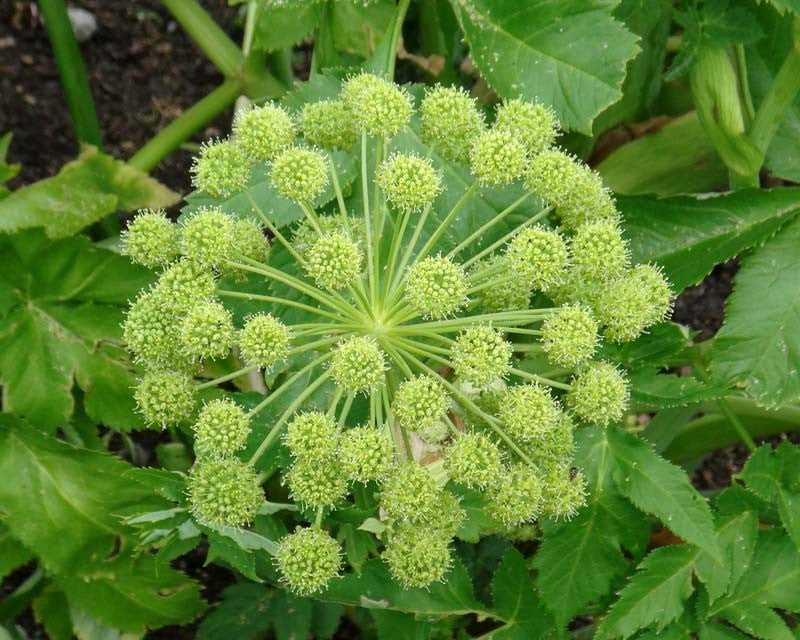
Angelica, also known as Angelica archangelica, is a tall perennial herb that has been used for centuries in herbal medicine. Native to the mountainous regions of Europe and Asia, angelica has a long history of being valued for its medicinal properties. In this article, we will explore the various properties of angelica and its potential uses in treating different health conditions.
One of the key properties of angelica is its ability to act as a digestive aid. It has been traditionally used to relieve various digestive issues, such as indigestion, bloating, and stomach cramps. Angelica contains essential oils and compounds that can help stimulate the production of gastric juices and enzymes, promoting better digestion and absorption of nutrients.
Apart from its digestive benefits, angelica also possesses anti-inflammatory properties, which can help reduce inflammation in the body. This makes it valuable in managing conditions such as arthritis, gout, and even certain skin disorders. The herb contains bioactive compounds that have been shown to inhibit the production of inflammatory substances and reduce swelling.
It is important to note that while angelica has many potential health benefits, there are also certain contraindications to be aware of. Pregnant women should avoid using angelica, as it may stimulate uterine contractions and potentially lead to miscarriage. Additionally, individuals with a known sensitivity to plants in the Apiaceae family, which angelica belongs to, should exercise caution when using this herb.
In conclusion, angelica is a versatile herb with numerous therapeutic properties. From aiding digestion to reducing inflammation, this herb has been used for centuries to promote overall health and well-being. However, it is crucial to always consult with a healthcare professional before using angelica, especially if you have any underlying medical conditions or are taking medications, to ensure its safe and appropriate use.
What is Medicinal Angelica?
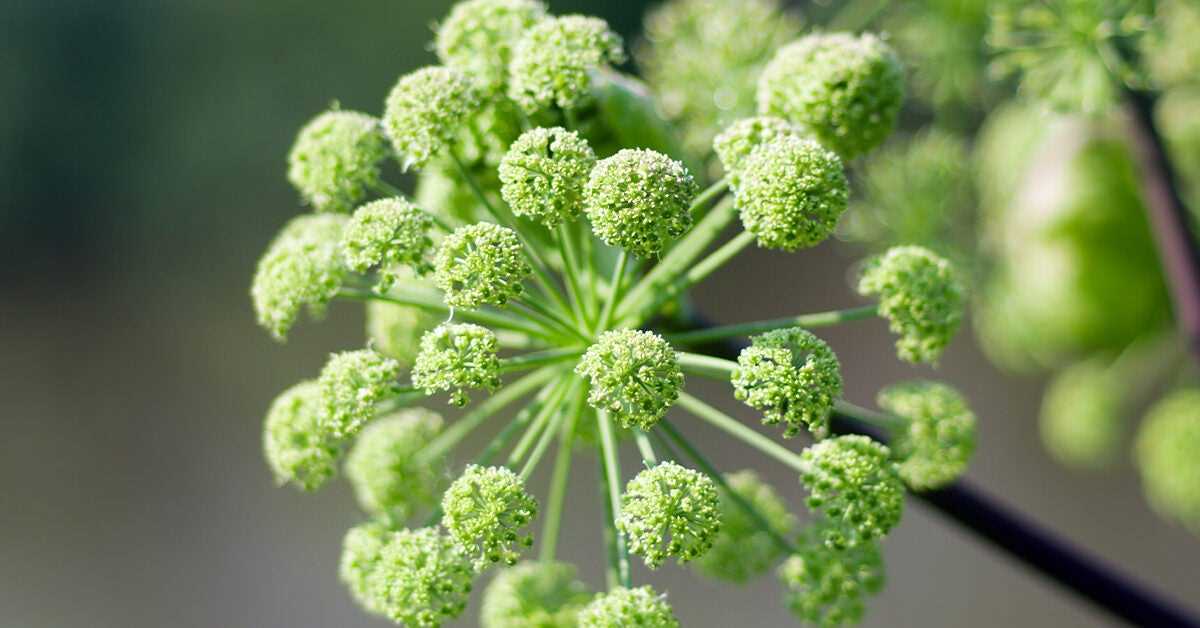

Medicinal Angelica, also known as Angelica archangelica, is a perennial herb that belongs to the Apiaceae family. Native to northern Europe, it is now commonly cultivated in different parts of the world, including North America. This herb has a long history of use in traditional medicine and is valued for its various medicinal properties.
Medicinal Angelica has a tall, robust stem that can reach heights of up to 2 meters. The plant has large, serrated leaves that are dark green in color. It produces clusters of small yellowish-green flowers that bloom in the summer. The herb has a distinctive aroma, often described as musky and earthy.
Traditional Uses
In traditional medicine, Medicinal Angelica has been used for centuries to treat various ailments. It is believed to have diuretic, expectorant, and antispasmodic properties. The herb is commonly used to alleviate digestive issues, such as indigestion, bloating, and stomach cramps.
Medicinal Angelica is also valued for its ability to support respiratory health. It is used to relieve coughs, colds, and bronchitis. Additionally, the herb has been used topically to promote wound healing and soothe skin irritations.
Chemical Constituents


Medicinal Angelica contains several bioactive compounds that contribute to its therapeutic effects. These include essential oils, coumarins, flavonoids, and polysaccharides. The essential oils are responsible for the herb’s distinctive aroma and are believed to possess antimicrobial and anti-inflammatory properties.
Coumarins found in Medicinal Angelica are known for their ability to thin the blood, which may have implications for cardiovascular health. Flavonoids have antioxidant properties and can help protect against oxidative stress. Polysaccharides found in the herb are thought to have immunomodulatory effects, supporting the immune system.
Precautions and Side Effects
While Medicinal Angelica is generally considered safe for most individuals when used in moderation, there are some precautions to keep in mind. The herb may increase photosensitivity, so it is important to protect the skin from excessive sun exposure when using products containing the herb.
Due to its potential blood-thinning effects, individuals taking anticoagulant medications or those with bleeding disorders should consult a healthcare professional before using Medicinal Angelica. Additionally, the herb may cause an allergic reaction in susceptible individuals, so it is advisable to perform a patch test before using it topically.
It is always recommended to consult with a healthcare professional before using any herbal remedies, especially if you have an existing medical condition or are taking other medications.
The Properties of Medicinal Angelica
Medicinal Angelica, also known as Angelica archangelica, is a plant that has been used for centuries for its therapeutic properties. It is native to Northern Europe and parts of Asia and is grown for both its culinary and medicinal uses. Here are some of the main properties of this plant:
1. Anti-inflammatory
Medicinal Angelica has anti-inflammatory properties, which make it useful in the treatment of various inflammatory conditions such as arthritis and gout. It can help reduce pain and swelling in affected areas of the body.
2. Digestive Aid
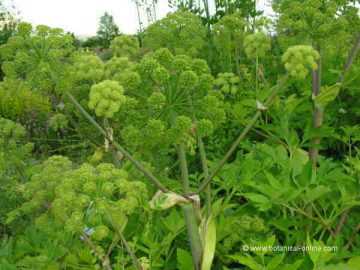

Angelica has long been used as a digestive aid, helping to relieve indigestion, bloating, and other stomach discomforts. It can stimulate the production of digestive enzymes and improve overall digestion.
3. Antispasmodic
The antispasmodic properties of Angelica make it an effective remedy for muscle spasms, menstrual cramps, and other conditions involving involuntary muscle contractions. It can help relax the muscles and relieve pain.
4. Diuretic
Angelica has diuretic properties, meaning it can increase urine production and help remove excess fluid from the body. This can be beneficial for conditions such as edema and high blood pressure.
5. Immune Booster
Medicinal Angelica is known for its immune-boosting properties. It contains compounds that can enhance the activity of the immune system, helping the body fight off infections and diseases.
6. Antioxidant
Angelica is a rich source of antioxidants, which can help protect the body against free radicals and oxidative stress. These antioxidants can help reduce the risk of chronic diseases and support overall health.
7. Respiratory Support
Angelica has been used traditionally to support respiratory health. It can help relieve coughs, congestion, and other respiratory conditions, making it a useful natural remedy for respiratory infections.
8. Blood Circulation
Angelica has been found to have properties that can improve blood circulation. It can help dilate blood vessels, reduce blood clotting, and improve overall blood flow.
9. Hormonal Balance
This herb has been used to support hormonal balance, particularly in women. It can help regulate menstrual cycles, reduce menstrual pain, and alleviate symptoms of menopause.
These are just some of the properties of medicinal Angelica. It is important to note that while it has many potential benefits, it may not be suitable for everyone. It is always recommended to consult with a healthcare professional before using any herbal remedies or supplements.
Benefits of Medicinal Angelica


- Antioxidant properties: Medicinal angelica is rich in antioxidants, which can help protect the body against damage from harmful free radicals. These antioxidants can help reduce the risk of chronic diseases such as heart disease and cancer.
- Anti-inflammatory effects: Medicinal angelica has been traditionally used to treat inflammation-related conditions such as arthritis and digestive disorders. It contains compounds that can help reduce inflammation in the body.
- Improves digestion: Medicinal angelica can be beneficial for digestive health. It has carminative properties, which means it can help relieve bloating, gas, and indigestion. It may also help stimulate appetite and promote better digestion.
- Boosts immune system: Medicinal angelica has immune-enhancing properties, which can help strengthen the body’s defense against infections and diseases. It can help stimulate the production of immune cells and promote overall immune function.
- Relieves menstrual cramps: Medicinal angelica has been used in traditional medicine to relieve menstrual cramps and regulate menstrual cycles. It has antispasmodic properties that can help relax the uterine muscles and reduce pain associated with menstruation.
- Supports respiratory health: Medicinal angelica has expectorant properties, which means it can help loosen and expel phlegm from the respiratory tract. This can be beneficial for conditions such as coughs, bronchitis, and asthma.
- Anti-anxiety effects: Medicinal angelica may have calming and anti-anxiety effects. It can help promote relaxation and reduce symptoms of anxiety and stress. It may also improve sleep quality.
How to Use Medicinal Angelica
1. Tea
One of the most common ways to use medicinal angelica is by preparing a tea. To make angelica tea, follow these steps:
- Take a teaspoon of dried angelica root or leaves.
- Add it to a cup of boiling water.
- Cover the cup and let it steep for 10-15 minutes.
- Strain the tea to remove any plant material.
- You can drink the tea as is or add honey or lemon for flavor.
2. Tincture
Another way to use medicinal angelica is by preparing a tincture. Here’s how you can make an angelica tincture:
- Take a handful of fresh angelica root or leaves.
- Chop the root or leaves into small pieces.
- Place the chopped angelica in a glass jar.
- Pour alcohol (like vodka or brandy) over the angelica until it is completely covered.
- Close the jar tightly and store it in a cool, dark place for 4-6 weeks.
- After the steeping period, strain the tincture to remove any plant material.
- The tincture can be taken in small doses, usually diluted in water or juice.
3. Topical Application
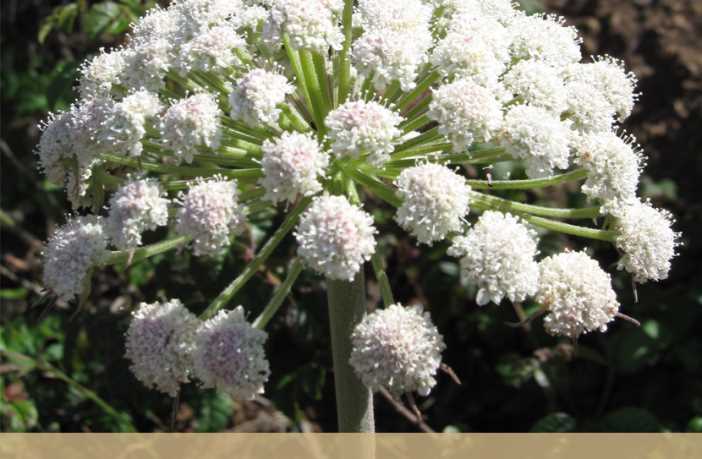

Medicinal angelica can also be used topically to treat certain skin conditions or relieve muscle pain. Here’s how to apply it:
- Prepare a strong infusion of angelica tea by using a higher concentration of dried angelica root or leaves.
- Let the infusion cool down until it reaches room temperature.
- Soak a clean cloth or cotton pad in the infusion.
- Apply the moistened cloth or cotton pad directly onto the affected area.
- Leave it on for 10-15 minutes.
- Repeat this process several times a day as needed.
4. Cooking
Medicinal angelica can also be used in cooking to add flavor and nutrition. Here are a few ways to incorporate angelica into your recipes:
- Add dried angelica leaves or root to herbal seasoning blends or spice rubs.
- Use angelica stems as a garnish for salads or other dishes.
- Infuse angelica leaves in oil or vinegar to create flavored dressings.
- Bake angelica root into cookies, cakes, or breads for a unique taste.
- Experiment with different recipes and find your own ways to use angelica in your cooking.
It’s important to note that these are general guidelines for using medicinal angelica. It’s always a good idea to consult with a healthcare professional or herbalist before adding any new herb to your routine, especially if you have any underlying health conditions or are taking medication.
Precautions and Contraindications
While medicinal angelica can offer various health benefits, it is important to be aware of certain precautions and contraindications before using it. Here are some important points to keep in mind:
1. Allergies:
Individuals who are allergic to plants in the Apiaceae family, such as carrots, celery, or parsley, are more likely to experience an allergic reaction to medicinal angelica. It is advisable to avoid using this herb if you have known allergies to these plants.
2. Pregnancy and breastfeeding:
There is limited research on the safety of medicinal angelica during pregnancy and breastfeeding. It is recommended to avoid using angelica during these periods to ensure the well-being of both the mother and the baby.
3. Bleeding disorders:


Medicinal angelica has blood-thinning properties, which can increase the risk of bleeding in individuals with bleeding disorders. If you have a bleeding disorder or are taking medications that thin the blood, it is important to consult with your healthcare provider before using angelica.
4. Surgery and anesthesia:
Angelica may interfere with blood clotting and can increase bleeding during and after surgery. It is essential to inform your surgeon and anesthesiologist about your angelica use, as they may advise you to stop using it a few weeks before the surgery.
5. Diabetes:
Angelica may lower blood sugar levels, so individuals with diabetes should monitor their blood sugar levels closely while using this herb. It is important to work closely with a healthcare professional to adjust any diabetes medications if necessary.
6. Interactions with medications:
Medicinal angelica may interact with certain medications, including anticoagulants, antiplatelet drugs, and diabetes medications. Consult with your healthcare provider or pharmacist to ensure there are no potential interactions between angelica and your current medications.
7. Children:
Due to limited research on the safety of medicinal angelica in children, it is generally advised to avoid using this herb in children without medical supervision.
Overall, it is crucial to consult with a healthcare professional before using medicinal angelica, especially if you have any underlying medical conditions or are taking medications. They can provide personalized advice based on your specific health needs and help determine if angelica is safe and appropriate for you.
Side Effects of Medicinal Angelica
While medicinal angelica has numerous health benefits, it can also pose certain side effects and risks. It is important to be aware of these potential side effects before incorporating medicinal angelica into your health regimen. Some of the possible side effects include:
- Allergic Reactions: Some individuals may be allergic to medicinal angelica, especially those who are sensitive to plants in the Apiaceae family. Allergic reactions can range from mild symptoms such as skin irritation to more severe symptoms like difficulty breathing or anaphylaxis. If you experience any signs of an allergic reaction, discontinue use and seek medical attention immediately.
- Stomach Issues: Medicinal angelica may cause stomach discomfort, indigestion, nausea, or diarrhea in some individuals. If you have a history of gastrointestinal issues, it is advisable to consult with a healthcare professional before using medicinal angelica.
- Skin Sensitivity: Direct contact with medicinal angelica sap or its essential oil may cause skin sensitivity and photosensitivity, leading to skin irritation or reactions when exposed to sunlight. It is recommended to do a patch test before using the essential oil topically and to avoid sun exposure for a few hours after application.
- Hormonal Effects: Medicinal angelica contains compounds that may have hormonal effects. It should be used cautiously by individuals with hormonal imbalances or those taking medications that affect hormonal levels.
- Bleeding Disorders: Medicinal angelica may have anticoagulant properties and increase the risk of bleeding. Individuals with bleeding disorders or those taking blood-thinning medications should exercise caution and consult with a healthcare professional before using medicinal angelica.
It is crucial to consult with a healthcare professional, especially if you have pre-existing medical conditions, are taking medications, or are pregnant or breastfeeding, before using medicinal angelica to ensure its safe and appropriate use.
Interaction with Other Medications
It is essential to be aware of the potential interactions between medicinal angelica and other medications. This knowledge can help prevent any adverse effects or minimize the risk of unwanted drug interactions.
1. Anticoagulant Drugs:
Medicinal angelica has mild anticoagulant properties, which means that it may increase the risk of bleeding when combined with other anticoagulant drugs such as warfarin, heparin, or aspirin. It is recommended to avoid the simultaneous use of medicinal angelica with these medications to prevent excessive bleeding.
2. Antiplatelet Drugs:
Similarly, medicinal angelica’s anticoagulant effects may increase the risk of bleeding when taken concomitantly with antiplatelet drugs like clopidogrel, ticagrelor, or dipyridamole. Close monitoring is necessary if using these medications together to ensure proper blood clotting.
3. Oral Contraceptives:
Medicinal angelica may potentially decrease the effectiveness of oral contraceptives (birth control pills) due to its hormone-regulating effects. It is advisable to use additional contraceptive methods or consult with a healthcare professional if medicinal angelica needs to be taken while using oral contraceptives.
4. Diabetes Medications:
There is a possibility that medicinal angelica can affect blood sugar levels. Therefore, individuals taking diabetes medications such as insulin or oral antidiabetic drugs should monitor their blood sugar regularly while using medicinal angelica to prevent any significant changes in glucose levels.
5. Immunosuppressant Drugs:
Medicinal angelica may have immunomodulatory effects, potentially affecting the immune system’s response. This interaction may alter the effectiveness of immunosuppressant medications like corticosteroids or cyclosporine. Close monitoring is necessary if using these medications alongside medicinal angelica.
It is crucial to inform the healthcare provider about all the medications being used, including medicinal angelica, to ensure safe and effective treatment. It is recommended to consult with a healthcare professional or pharmacist for personalized advice on potential drug interactions with medicinal angelica.
Where to Buy Medicinal Angelica
If you are interested in purchasing medicinal Angelica, you can find it at various outlets. Here are some options for buying this herb:
- Local health food stores: Many health food stores carry medicinal Angelica in different forms such as capsules, tinctures, or dried herb. You can check with your local health food store to see if they have it in stock.
- Online retailers: There are several online retailers that specialize in selling herbal products. You can search for medicinal Angelica on these websites and order it conveniently from the comfort of your own home.
- Herbalists and naturopaths: Herbalists and naturopaths may carry medicinal Angelica in their practices. They can provide expert advice on its usage and help you find a reliable source to purchase from.
When purchasing medicinal Angelica, it is important to choose a reputable source that offers high-quality products. Look for organic or wildcrafted options, as these are often believed to be more potent and free from pesticides.
Before using any herbal remedy, especially if you have any underlying health conditions or are taking medication, it is important to consult with a qualified healthcare professional for guidance.
Questions and Answers:
What are the properties of medicinal Angelica?
Medicinal Angelica has a wide range of properties, including anti-inflammatory, analgesic, diuretic, and expectorant.
What are the health benefits of medicinal Angelica?
Medicinal Angelica can help with various health issues such as digestive disorders, respiratory conditions, menstrual cramps, and urinary tract infections.
Can medicinal Angelica be used for pain relief?
Yes, medicinal Angelica has analgesic properties and can be used to relieve pain, especially joint and muscle pain.
Is medicinal Angelica safe to use during pregnancy?
No, it is not recommended to use medicinal Angelica during pregnancy as it may have uterine-stimulating effects, which can be harmful.
Are there any contraindications or side effects of medicinal Angelica?
Medicinal Angelica should be used with caution, as it can cause allergic reactions in some individuals. It may also interact with certain medications, so it is important to consult a healthcare professional before using it.
Can medicinal Angelica be used for respiratory conditions?
Yes, medicinal Angelica has expectorant properties and can help in relieving respiratory conditions such as coughs and bronchitis.
Are there any traditional uses of medicinal Angelica?
Yes, medicinal Angelica has been used in traditional medicine to treat digestive disorders, menstrual cramps, and urinary tract infections.


